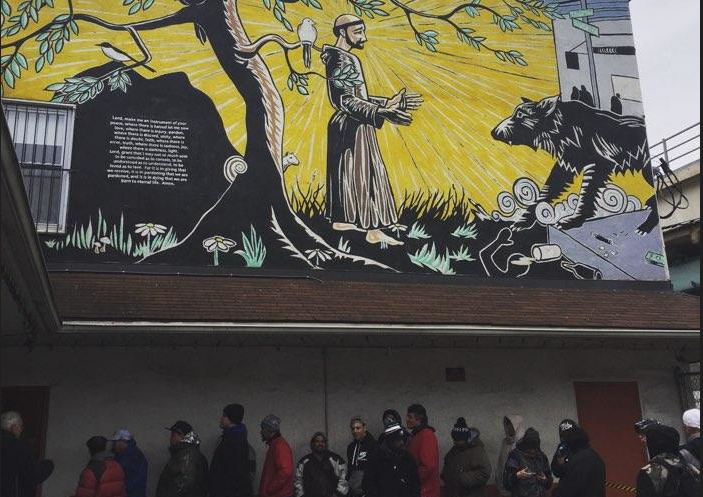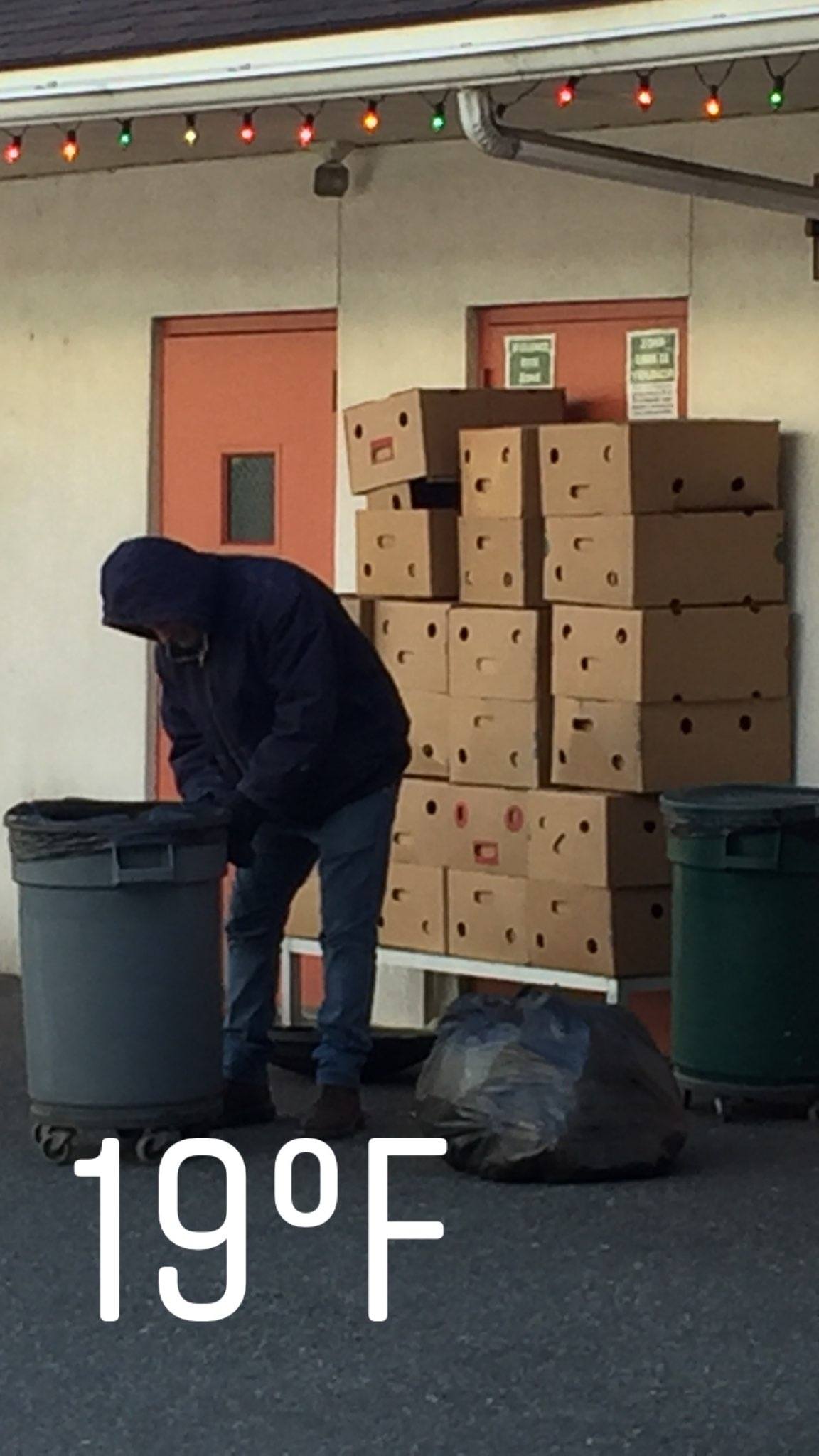Food, Service, & Family


Date: July 2019
Subject: Erica Santuccio
Field: Food Service
On the very first episode of the Work Ethic Podcast I interviewed Erica Santuccio. At that time she was my fiance and has since become Erica Dengler, my incredible wife. Erica has always worked in hospitality and food service and at the time of the interview, she was working for the Hillsborough County Public School system as a Student Nutrition Manager, AKA the lunch lady!
In the middle of the interview I asked her about unpaid work which led her to start reflecting on serving others in need. She spoke of community service and volunteer experiences as deeply meaningful work “with real purpose.” When asked to say more about that, Erica told two stories.
She spoke about a community of men and women living and working together to run a soup kitchen in Philadelphia. It’s a community devoted to pursuing a Franciscan spirituality and way of life. She spoke of one friar, Brother Fred, who just captivated her. She continued “he did a lot of what people would consider dirty work; like taking the trash out, sweeping, picking up spills, cleaning out the equipment. He never complained.” she noted. “And he always had a smile on his face…everything about him was so beautiful.”
She said she took a picture of him early one morning while he was taking out the trash in freezing cold temperatures. She said it was such a powerful image and it was also just him doing what he is doing every other day. She said it just made her realize “I need to keep that aspect of food in my life. Like, I need to continuously be taking the trash out and cleaning and just reflecting on what it means to serve.”

She continued “It was important for me to take a picture of him and I look at it often. I think that's a specific type of work. It isn't always fun, but it seems right and I am now hesitant to give that kind of task to somebody else.”
I was really interested to hear more about this kind of appreciation for behind the scenes, dirty, or specifically hard work that she kept referring to as “good work”. So I asked “can you try to unpack that? Why do you think this touched you so much? Why do you think it was so meaningful to you?”
“It seems to be an underlying belief in the food service industry.” she said as she launched into another story.
“I remember the first job I had on the line was at T-Bones, in New Hampshire. The guy that owned it (he was a part owner, I believe) gave me my first tour of the kitchen.”
“Here's a dishwasher, here's the fry guy, here's the guy, you know, wrapping all the meat.” She said imitating his tour. “As he was talking” she continued “he's just walking me through and all of a sudden, he stops and he grabs a bucket, and he puts a towel in there. Then he takes a piece of cardboard from the recycle spot, puts it on the floor, lays down on his back and starts scrubbing underneath the salad station, all while he is still talking to me.” He turns to her and says “as you walk around, if there's anything that needs to be done, just do it.” As she recalls the tour she says “I was like, wow, you're the part owner, and you're just on your back scrubbing. And then on our way out, he went over to the dish guy, the kid was about 17 or 18 and he was sweating, he was smelly, and his whites were like, completely covered in ketchup and all this stuff. The owner turned to me and said, ‘This is the most important person in that kitchen. Don't forget that.’ It goes without saying that a kitchen cannot operate without a dishwasher. Right? That stuck with me and it was even more powerful to me because I had just watched him clean, right? So I had watched him flesh out his own belief, right? So he's like, I believe that things need to be done. I believe that things need to be clean. Like, this isn't just, oh, let's have fun and cook food. There's back breaking work that needs to be done. And the people who do that work day in and day out are the backbone of the place. And don't forget it!”
She told two stories and I realized that while one was a religious friar and the other a business owner, there was a similar ethos or spirit that she was illustration. I asked her to compare and contrast the stories and see if she could actually name it.
Here is what she said:
"Yeah, when I was at the St Francis Inn, it was clear that there wasn't like a hierarchy. Now, obviously, there was right? So there are people who had different roles. But it seemed as though they were always trying to be equal, and to just be a family. That included the guests, includes the public, as if there were no hierarchy. And I think that is a similar thing in restaurants. Because there is naturally a hierarchy, like the prep cook is not going to get paid the same as the sauté guy right? Naturally, that happens in various businesses, but a good restaurant will have a family meal, and everybody contributes to the meal, depending on what station you're assigned. Then you all eat together. And they did similar things at the Inn…The restaurants that I have liked the least, aren't relational, and it’s clear that the head chef is the head chef. I mean, in a professional kitchen, that is the culture. You should be super respectful and if the chef's name is Dan, you don't call them Dan. You call them chef right? And it was the same in the community up in Philly. Like, if you’re Brother Fred you’re Brother Fred, if your Father Michael, then you’re Father Michael. So there's an awareness that people have different roles and different tasks, but the businesses that look most like the soup kitchen seem to do the best when it comes to just relationships, goal setting, and keeping people together. Restaurants often have staff like a revolving door but if you feel like you’re part of a community, if you feel like you're part of a family, you're less likely to leave. Right? And families don't put their weakest link out on the porch when they have dinner.”
If you would like to hear the rest of our conversation check out Episode 1 of the WorkEthicPodcast.com
